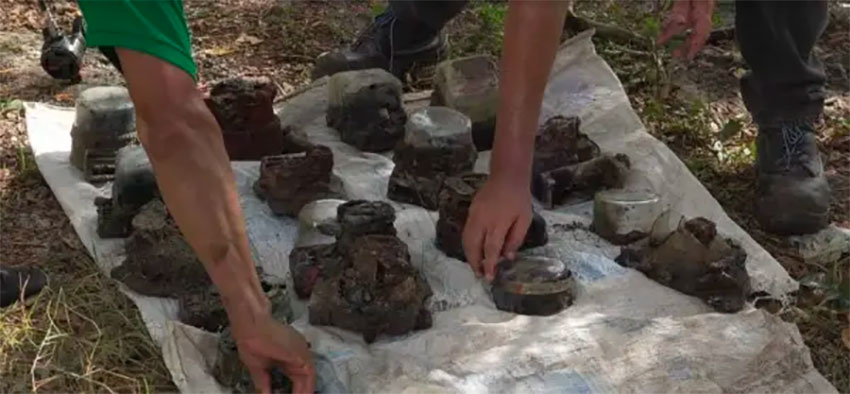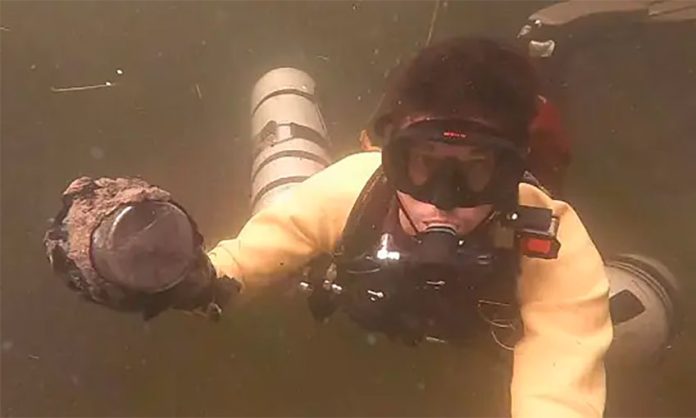A routine environmental cleanup of a Yucatán cenote yielded an unusual surprise embedded in the underwater cave’s debris: 112 discarded and corroded electricity meters.
Archaeologist Sergio Grosjean Abimerhi, an expert on Yucatán cenotes who was working on cleaning up the Chen há cenote in Kopomá, said that crews found the meters — some with marine animals’ jaws attached to them — mixed in with 700 kilos of sediment.
He said the meters contain “highly contaminating components” such as copper, lead and magnets which represent a risk not only to animals using the cenote as habitat but also to local residents who extract its water for human and animal consumption and irrigation. Even bleaching, a common practice to make the water safe for human consumption, does not eliminate the heavy metals, Grosjean said.
Metal detectors were used to detect the meters, which were buried deep due to their weight and due to the fact that Chen há, an open cenote, is subject to frequent precipitation with organic matter. The divers also found well-preserved dead fish at the cenote’s bottom depths and three crocodile skulls.
“The question we want to solve is whether these heavy metals caused the death of the fish,” Grosjean said.

In recent years, scientific studies have determined that Yucatán’s waters are contaminated with carcinogenic particulates. The dumping of items such as the meters is likely contributing to the problem, Grosjean said.
“We are calling upon authorities at the local, state, and federal level to take note of this matter since the person dumping these electricity meters and their reason for doing so is unknown,” he said. “[And] we call on the public to take responsibility for the cenotes in the Yucatán Peninsula, since the water that they contain in one form or another arrives at our homes.”
Source: Diario de Yucatán (sp)
